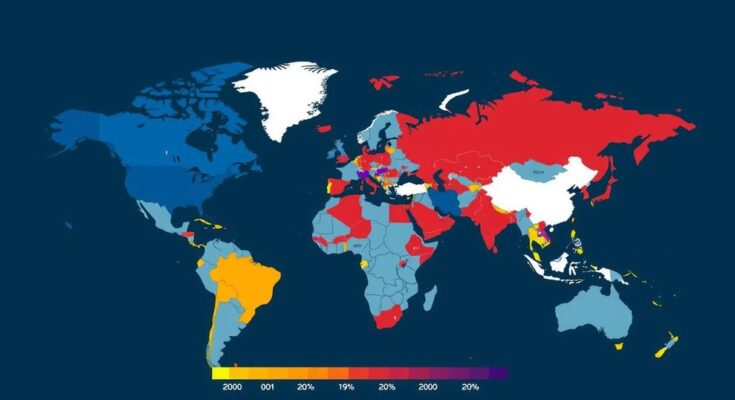The recent electoral results indicate a global trend of incumbent parties facing significant losses, with over 80% losing seats or vote share in various democracies. Despite challenges, the Democrats’ losses were comparatively smaller, attributed to stronger economic conditions in the U.S. compared to other nations experiencing turmoil. However, key issues such as inflation dominated voter concerns, affecting perceptions of the party. The overall results suggest that while the current climate is disappointing, future elections may afford the Democrats better opportunities as they exit their incumbency.
As the aftermath of the recent elections is examined, it becomes evident that the Democrats’ challenges are part of a broader trend experienced by incumbent parties globally. Despite Vice President Kamala Harris’s campaign facing severe headwinds, including domestic dissatisfaction and economic grievances, the losses incurred by the Democrats were relatively modest compared to other democracies, where over 80 percent of incumbent parties either lost seats or vote share. The historical context reveals that many nations, such as Japan and South Africa, saw long-standing political powers relinquish their dominance; in contrast, U.S. Democrats managed to maintain their standing in House representation despite facing significant challenges. The year 2024 is poised to witness record voter turnout as discontent with governing bodies has intensified across numerous democracies. In countries where elections occurred, striking defeats were recorded—for instance, the recent election results in Italy, France, and across other European nations reflect a significant voter backlash against incumbents. This global phenomenon, marked by the rejection of established political parties, has underscored the prevailing political malaise shaped by economic difficulties and citizens’ frustrations. While the United States did not escape this trend, the Democrats demonstrated relative resilience thanks to a comparatively stronger economic portfolio. In contrast to nations grappling with inflation and stagnant growth post-pandemic, the U.S. exhibited robust GDP growth and improved wage metrics. Nevertheless, public focus remained sharply trained on inflation and the high cost of living, overshadowing positive economic indicators that Democratic representatives sought to highlight. The dynamics of campaigning also played a critical role in determining election outcomes. Unlike several incumbent governments worldwide that retained their influence through invoking security matters, such as gang violence and geopolitical threats, the U.S. electoral campaign failed to prioritize national security in a similar fashion. Despite immigration surfacing as a concern, it lacked the pronounced influence necessary to alter voters’ sentiments significantly. In conclusion, the Democrats’ electoral experience underscores a significant moment of transformation in the political landscape, shaped by both domestic and global contexts. While economic anxiety and disillusionment with leadership were detrimental to their campaign, historical expectations suggest that future elections may present more favorable conditions for them, particularly considering they will no longer bear the burdens of incumbency.
The ongoing transformations in the global political landscape highlight a notable pattern wherein incumbent parties across various democracies are experiencing unprecedented electoral losses. A multitude of factors, including economic conditions, voter dissatisfaction, and prevailing issues, have contributed to this trend. The impact of these developments has been particularly evident in the U.S., where the Democrats worked under difficult conditions during the recent elections, exhibiting a performance that stood in sharp contrast to the broader international electoral climate. Understanding these overarching trends assists in contextualizing the pressures faced by the Democratic Party and their comparatively moderate losses.
The electoral landscape of 2024 reflects a broader trend of dissatisfaction with incumbent parties worldwide, with significant ramifications for the Democrats. While they were not immune to economic anxieties and public discontent, their losses were less severe than those of similar parties in other democracies. The resilience displayed may provide a platform for future opportunities, particularly as the Democrats move away from the burdens of incumbency in upcoming elections.
Original Source: abcnews.go.com




